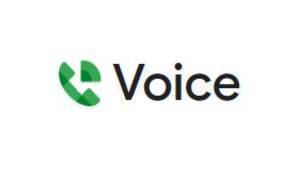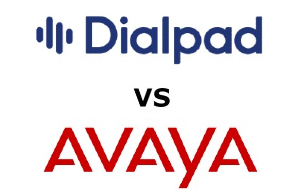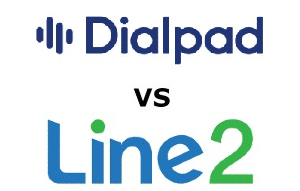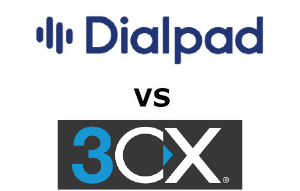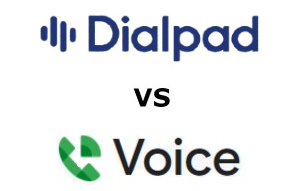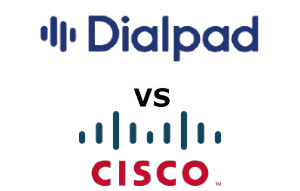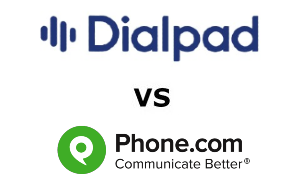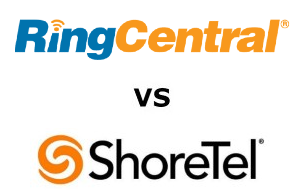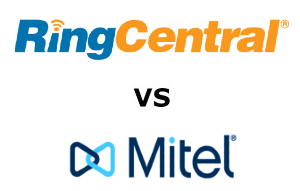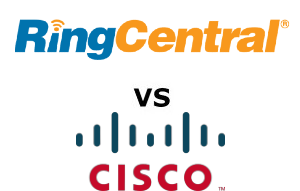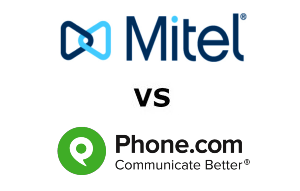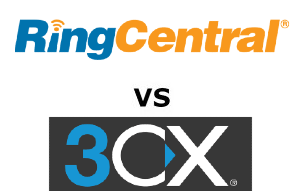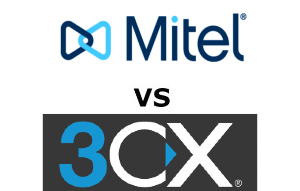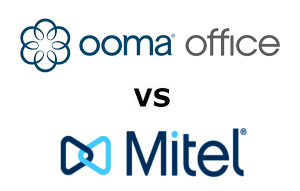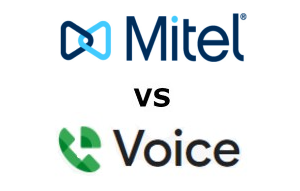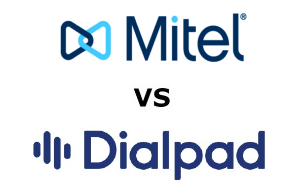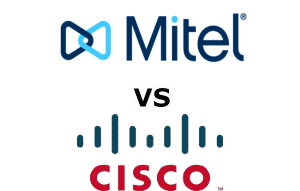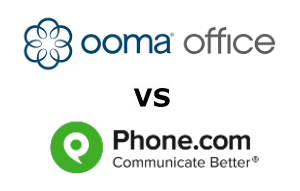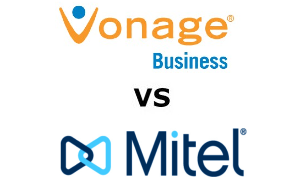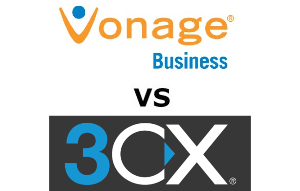Find Top Business Phone Service Providers In Your Local Area
Our Business VoIP Guides
Ooma Office Alternatives: Compare Top Ooma Office Competitors
Ooma Office was one of the big VoIP companies to offer their services for free to businesses. Users were able to use Ooma’s software completely free which enticed many companies to try their services. The company has now grown to a large scale since they were founded...
Grasshopper Alternatives: Compare Grasshopper Competitors
Grasshopper is a VoIP service provider that was established in 2003 and has been helping businesses improve their communications. Their features are tailored towards small and medium sized companies that are looking to unify their communications and make them easy to...
Vonage Business Alternatives: Compare Vonage Competitors
Vonage Business has a great variety of VoIP features, customer support options, and pricing plans that could suit your company well. However, there are also some fantastic alternatives to Vonage that you may be interested in. Rounding up the top contenders and...
Google Voice for Business vs Avaya Compared for 2024
If you’ve been considering using Google Voice or Avaya as your business phone service provider, you may want to check out our comparison post below. You can find details about the pricing plans, main features, and customer support options that both services have to...
Google Voice for Business vs 3CX Compared for 2024
If you’re struggling to choose the best VoIP service for your business, you’ll want to check out our post below. You can find details about what Google Voice and 3CX have to offer so that you can make a more informed decision about the one that’s best for your...
Phone.com vs Avaya Compared for 2024
Are you interested in using Phone.com or Avaya’s VoIP services? If so, you may want to check out our comparison post below. You can find details about the pricing plans, customer support options, and main features that both of these VoIP services have to offer....
Phone.com vs Vonage Business Compared for 2024
Phone.com and Vonage Business both offer a great variety of VoIP features that different types of businesses can use to improve their communications. If you’re having a difficult time trying to decide whether Phone.com or Vonage Business is the right choice for your...
Line2 vs Mitel Compared for 2024
Are you interested in using Line2 or Mitel as your next VoIP service? If so, you may want to check out our comparison post. You can find details about the pricing plans, features, and customer support options that both of these VoIP companies have to offer. Once you...
Line2 vs Ooma Office Compared for 2024
Line2 and Ooma Office both offer a great range of VoIP features that businesses have been using to improve their communications. If you’re struggling to decide which one of these services would be best for your business, you may want to check out our post below. You...
Line2 vs Jive Compared for 2024
If you’re looking to improve your company’s communications, you may want to carefully consider the type of VoIP service that you use. The right VoIP service will allow your employees to easily communicate with each other and provide customers with a reliable form of...
Line2 vs Grasshopper Compared for 2024
Line2 and Grasshopper provide businesses with VoIP features that help to improve their communications. If you’re having a difficult time choosing between using Line2 or Grasshopper, you may want to check out our comparison post below. You can find more details about...
Line2 vs Cisco Compared for 2024
Line2 and Cisco are popular VoIP choices among businesses for different reasons. If you were interested in using one of these two services, you may want to check out our post below. It includes more details about the main features, pricing plans, and customer support...
Line2 vs Avaya Compared for 2024
VoIP services help companies improve their communications and can make it easier for you to manage it all in one place. Choosing the VoIP system that’s right for your business can be tricky since there are so many options available and different factors to consider. ...
Phone.com vs 3CX Compared for 2024
VoIP services help companies improve their communications and can make it easier for you to manage it all in one place. Choosing the VoIP system that’s right for your business can be tricky since there are so many options available and different factors to consider. ...
Phone.com vs Google Voice for Business Compared for 2024
Are you having a hard time deciding whether to use Phone.com or Google Voice? If so, you may want to check out our comparison post below. It includes details about the pricing plans, main features, and customer support options that both services have to offer. This...
Line2 vs RingCentral Compared for 2024
Line2 and RingCentral both provide businesses with VoIP services that help to improve their communications and trying to decide between the two can be difficult. This post contains information about the main features, pricing plans, and customer support options that...
Vonage Business vs Line2 Compared for 2024
Are you interested in trying out a new VoIP service provider? If so, you may want to check out our comparison post that includes details about Line2 and Vonage Business. You’ll discover more about the pricing plans, customer support options, and main features that...
Line2 vs 8×8 Compared for 2024
If you're considering Line2 or 8x8 as your next VoIP service provider, you may want to check out our comparison post first. We’ve included details surrounding the main features, pricing plans, and customer support options that are available. By the end, you’ll be...
Line2 vs Phone.com Compared for 2024
Are you interested in using Line2 or Phone.com as your new VoIP service provider? If so, you may be interested to check out our comparison post below. We’ve included details about the customer support options, pricing plans, and features that both of these VoIP...
Nextiva vs Line2 Compared for 2024
Nextiva and Line2 are both popular VoIP services that companies use to improve their communications. They have different features, pricing plans, and customer support options which can make it difficult when it comes to choosing between them. Using a high-quality VoIP...
Line2 vs 3CX Compared for 2024
If you’re interested potentially getting Line2 or 3CX, you may want to check out our comparison post first. We’ve included details about the features, customer support, and pricing plans that both of these VoIP services have to offer. Choosing the right VoIP service...
ShoreTel vs Avaya Compared for 2024
Avaya and ShoreTel are both popular business phone service providers that are used by many medium sized business use. If you’re having a difficult time trying to decide which one of the two to use, you may be interested to check out this comparison post. You can find...
ShoreTel vs Line2 Compared for 2024
If you’re looking to switch business phone services we suggest you consider ShoreTel and Line2 as your company’s new VoIP service provider. You can check out our comparison post below. We’ve included information about the main features, customer support, and pricing...
ShoreTel vs 3CX Compared for 2024
3CX and ShoreTel both provide businesses with superb VoIP services that help improve communications between colleagues, as well as with your customers. Trying to decide between these two VoIP services can be difficult. This comparison post includes details about the...
ShoreTel vs Phone.com Compared for 2024
Phone.com and ShoreTel both provide companies with great VoIP features and deciding between the two of them can be difficult. Picking the right VoIP service for your business can improve your customer service reputation and encourage teams to be more efficient when...
ShoreTel vs Google Voice Business Compared for 2024
ShoreTel and Google Voice for Business provide companies with VoIP services that they can use to improve their communications. If you were considering using either of these VoIP providers, you may want to check out our comparison post below. We’ve included details...
Grasshopper vs Ooma Office Compared for 2024
Ooma Business and Grasshopper both have superb VoIP features that companies have been using to improve their communications. However, trying to decide whether to use Grasshopper or Ooma Business can be difficult. This post includes information surrounding the main...
Cisco vs Avaya Compared for 2024
VoIP services can improve the way your business handles communications. Employees can keep in contact with each other more easily and they can also provide customers with a more reliable and helpful experience. However, finding the right VoIP service provider for your...
Vonage Business vs Broadvoice Compared for 2024
Are you having a difficult time deciding on the right VoIP service for your business? If so, you may want to check out our comparison of Vonage Busines and Broadvoice below to learn more features that could help you decide which is the right VoIP provider for your...
Grasshopper vs Line2 Compared for 2024
If you’re look for a new business phone service provider you'll want to potentially consider Line2 and Grasshopper, you may want to read through our post below that compares the two VoIP companies. By the end, you’ll have a better idea about the kind of features,...
8×8 Alternatives: Compare Top 8×8 Competitors
This article takes you through the types of features that 8x8 have to offer, as well as details about the best 8x8 alternatives. By the end, you’ll have a better idea about the VoIP provider that’s best for your business. Top 8x8 Competitors & The Best...
Google Voice for Business Pricing & Review for 2024
The phone system of your business serves as your direct contact to all important people in your company or business. Thus, you must opt for an efficient solution that provides the tools and features you require to enhance and support your communication without burning...
3CX Phone System Pricing & Review for 2024
The 3CX phone system is an advanced communications solution available in 2021. Their VoIP technology is appropriate for businesses of any size that require all the important features of a modern contact center at a minimal price. There is no doubt that 3CX business...
Dialpad vs Avaya Compared for 2024
Using a high quality VoIP service can be a superb way for your business to improve communications between employees and clients, while also helping them to stay in contact with each other more easily. Dialpad and Avaya are both excellent VoIP services that businesses...
Dialpad vs Line2 Compared for 2024
If you've been thinking about using Dialpad or Line2 as your next VoIP service provider, you'll want to check out our post that compares the two services. Below you can discover more about the pricing plans, customer support, and range of features that both of these...
Dialpad vs 3CX Compared for 2024
Dialpad and 3CX are both excellent VoIP services that offer features businesses have been using to improve their communication with clients, as well as between team members. If you were struggling to decide between these two VoIP services, check out our comparison...
Dialpad vs Google Voice Business Compared for 2024
Google Voice for Business and Dialpad are top rated VoIP services that allow businesses to improve their communications both internally and externally. If you've been struggling to choose between these two VoIP service providers or want to learn more about what they...
Dialpad vs Cisco Compared for 2024
Are you interested in using Dialpad or Cisco's VoIP services? If so, you'll want to check out our comparison post below before making a decision on which new VoIP phone service is best for you. You can find out more about the pricing plans, customer support, and main...
Dialpad vs Phone.com Compared for 2024
Dialpad and Phone.com are both excellent VoIP services that nearly all types of businesses can use to improve their communications. To find out whether Dialpad or Phone.com could be your company's next VoIP services, check out our post below that compares what the two...
Dialpad vs ShoreTel Compared for 2024
Dialpad and ShoreTel are both popular VoIP services that businesses companies use to improve their communications. To learn more about whether Dialpad or ShoreTel is the next VoIP service for your business, check out our comparison post below. It includes the main...
Bridging the Digital Divide: Supporting Poor & Rural Communities as Internet Speeds Ramp Up
American internet usage has been tracked since early 2000 and in the 20 years since then, usage has gone from around five in ten to nine in ten Americans today. Internet usage however, isn’t indicative of the quality or speed of the internet available and as we demand...
RingCentral vs ShoreTel Compared for 2024
Are you interested in what RingCentral and ShoreTel's business phone systems have to offer? If so, you'll want to check out our comparison post below. It includes the main features, pricing plans, and customer support options that RingCentral and ShoreTel have to...
RingCentral vs Mitel Compared for 2024
Using the right VoIP service for your company can improve the way that you communicate with clients, while also making it more convenient for employees to stay in contact with each other. Many of these VoIP systems have a unified system which makes it easier for you...
RingCentral vs Cisco Compared for 2024
Have you been interested in using RingCentral or Cisco as your new business VoIP service provider? If so, you'll want to check out our post below as we've compared the main features, pricing plans, and customer support options that both of these VoIP services have to...
Mitel vs Phone.com Compared for 2024
Mitel and Phone.com are consider top rated VoIP service providers based on their cost and wide array of features offered. To get a better idea about whether Mitel or Phone.com is the next VoIP service provider for your company, check out our comparison post below....
RingCentral vs 3CX Compared for 2024
RingCentral and 3CX both have plenty of VoIP features, customer support options, and pricing plans suited for businesses of all sizes that it can be difficult deciding between the two. Below, you can learn more about what these VoIP services have to offer so that you...
Mitel vs 3CX Compared for 2024
Mitel and 3CX are both popular VoIP services that many businesses use to improve their communications. This is due to how their services are centralized and easier to manage, which can help your employees communicate better with each other and customers. After...
Ooma Office vs Mitel Phone System Compared for 2024
Mitel and Ooma Office both provide great VoIP services that many businesses can benefit from, however, it can be tricky trying to pick a VoIP service that's right for your business. That's why we've put together this post that compares the main features, customer...
Mitel vs Google Voice for Business Compared for 2024
Mitel and Google Voice are both superb VoIP services that many businesses use for improving their communications and saving money. To learn more about the main features, customer support options, and pricing plans that Mitel and GV have to offer, check out our...
Mitel vs Dialpad Compared for 2024
Mitel and Dialpad are popular VoIP services that many businesses have been using to improve the inbound and outbound communications. If you're struggling to decide on which one of these two is best for your company, check out out comparison post below. We've included...
Mitel vs Cisco Phone Compared for 2024
If you've been having a difficult time choosing whether Mitel or Cisco is the right VoIP service for your business, you may want to check out our comparison post below. We take you through the main features, customer support options, and pricing plans that Mitel and...
Ooma Office vs Phone.com Compared for 2024
Finding the right VoIP service provider for your business can have a huge impact on the way that your employees communicate with other team members and clients. This post covers the main features, pricing plans, and customer support options that are available with...
Vonage Business vs Mitel Compared for 2024
Are you interested in using a new VoIP service provider? If so, Vonage and Mitel can be excellent options, depending on the type of service you're looking for. To help make the decision making process easier, we've put together a comparison post below that include...
Vonage Business vs 3CX Compared for 2024
If you've been interested in using Vonage or 3CX and are having a tough time deciding on the one that you think is the best business phone service for your company, you'll be feeling a lot more confident after checking out our comparison post below. We've included the...
If you’re interested in saving money by getting get VoIP phone service for your business then you’ve come to the right place to start cutting your expenses each month with more features to boot. We have included a number of business VoIP statistics below in order to show you why now is the time to make the switch.
With the advent of VoIP you no longer have to look to landline phone service providers by zip code since VoIP providers can offer service in almost any area and with almost any area codes no matter what zip code you live in.
Whether your looking for a larger enterprise phone system or need a small business provider, the phone companies featured below offer customized plans for any budget and provide unparalleled customer service with the most extensive features.
With our reviews and comparisons of these top enterprise and small business VoIP providers you will get an idea of how the service is actually working for businesses just like yours. We provide these reviews free of charge for business owners that want to do the shopping for themselves and we also offer a free quote service if you want to be contacted by the top providers to get a custom quote that meets your exact exact needs.
So go ahead and have a look at our article and find the best business landline phone service provider by zip code! The guide should clear up any questions you were having about whether switching to VoIP was a good idea and the reviews should guide you towards the perfect provider for your needs.
*If you’ve come to the wrong place and are looking for home phone service please see our residential VoIP Provider reviews
Our List of Cold Hard Business VoIP Stats
Below we’ve put together a list of cold hard business VoIP statistics for you to use in order to build your case to your boss as to why your business should make the switch to VoIP! These aren’t silly mumbo jumbo numbers but rather great easy-to-understand ammunition you can use to quickly and easily convince your boss that he NEEDs (yes NEEDs, not wants) to make the switch, and PRONTO!
Being in the industry for so many years we understand how confusing VoIP can be so instead of talking about the technical aspects of it we’ve created a list of easy to understand facts that you can use to convince the decision maker at your place of employment so that they will without a doubt be ready to change over to one of the top business phone service providers!
If the decision maker at your company is like most people who have looked into making the switch, they’ve probably read a lot regarding the benefits of VoIP and why their business should make a change from a traditional service provider, but with these anecdotal stories it’s hard to know what’s actually the truth. Were these stories written by the providers who have a profit motive in getting you to make the move to VoIP?
So, if you’re an IT person or whatever other position and trying to present a case to your boss, company executives or the small business owners you work for you need strong facts in order to convince them that a switch is necessary.
[Related: www.Glance.Intuit.com Remote Access]
Cost Savings with VoIP
- Switching to VoIP can save small businesses up to 45% each month vs traditional phone services, making VoIP one of the cheapest business phone services. SOURCE: It World
- A cheap business phone line like VoIP allows companies that switch to see an average savings of over 50%. SOURCE: Telzio
- Small businesses that transition to VoIP are able to reduce their cost for local calling by up to 40%. SOURCE: Tech.co
- 31% of all businesses use VoIP to boost productivity and for its cost-saving features. Reducing communications expenses help companies gain a competitive edge over competitors that don’t make the switch. SOURCE: Sipnology
- By switching to telecommuting Dell was able to save $39.5 million and drastically cut carbon pollution. SOURCE: Environmental Leader
- Business landline phone services have on average 60% higher setup and maintenance costs vs VoIP. SOURCE: Nexitva
- All-in-one providers that integrate voice and web conferencing results in a 30% or higher reduction in conferencing expenses. SOURCE: Megapath Blog
- A case study in PC World found that businesses with 30 or more phone lines save on average $1,200 per month after switching to VoIP. SOURCE: PC WORLD
- Soft phones (phone calling apps on your computer) resulted in an average savings of over $1k per month on cell and long distance charges. SOURCE: Visual.ly
VoIP and Customer Service
- VoIP lets companies answer more customer service call – none go unanswered saving companies on average 191 hours per day. SOURCE: IT Toolbox
- Some VoIP Providers allow businesses to communicate via Whatsapp & FB Messenger resulting in higher satisfaction for customers. SOURCE: IT Toolbox
- VoIP allows small business to be more available with mobility so they can take calls when they’re away from their desk, raising customer satisfaction. SOURCE: Prooncall
VoIP and Mobility in Today’s World
- The mobile VoIP market is expected to experience accelerated grow to $145.76 billion by 2024. SOURCE: Grandview Research
- In 2017 it was reported that remote workers had grow at a rate of 159%, something that VoIP services provide an easy and cheap solution for. SOURCE: Global Work Place Analytics
- The mobile VoIP market is expected to grow at a rate of 28% per year from 2016-2020. SOURCE: Technavio
- Mobile workers can save on average gain 3 ½ days of working time every year. SOURCE: MegaPath
VoIP Raises Productivity
- VoIP makes it easy for to accommodate calls from anywhere in the world increasing productivity of works by an estimated 20%. SOURCE: Harbor Networks
- Companies with Unified Communications save on average more than 30 minutes per employee per day. SOURCE: MegaPath
- 2019 and beyond will continue to see a rise in the mobile workforce, with just over 35% of employees telecommuting at least on a part time basis. SOURCE: Gallup
- Unified messaging saves employees on average 43 minutes per day as a result of more efficient message management. SOURCE: Visual.ly
- Organizations that allowed the flexibility of letting their workers work remotely saw a full 1 day per week increase in productivity (20%), something that wouldn’t be possible without the unified communications available with VoIP. SOURCE: INC
- UCass can save companies of 100 employees up to $920,000 per year in productivity. SOURCE: Visual.ly
VoIP Market Growth
- The global VoIP services market is expected to reach to $140 billion USD annually by the year 2021. SOURCE: IT Toolbox
- There will be a projected 3 billion Mobile VoIP users by 2021. SOURCE: Wisdom Plexus
- 34 million VoIP Users in the USA, the highest in the world. SOURCE: Statista
- Latin American predicted to be the fastest growth VoIP market by 2024. SOURCE: Whatech
- In 2014 65% of organizations had indicated that they have either already deployed Cloud Ucass systems or had plans in place in the near future a number that has surely risen in the last 5 years. SOURCE: Info Week
- 62% of survey business respondents said improved employee collaboration is a top driver for switching to VoIP UC. SOURCE: Info Week
Session Initiation Protocol Trunking (SIP)
- 80% of businesses with at least 20k employees said SIP is a very important feature. SOURCE: All Stream
- Small and Medium sizes business can save approximately 70% with SIP. SOURCE: Business ATT
- It is estimated that large enterprises can save up to 50% by leveraging SIP trunking. SOURCE: Anaya
- 80% of businesses with 100-500 employees say the same. SOURCE: All Stream
VoIP Security
- Thanks to encryption these days VoIP is more secure than traditional landline phone service. SOURCE: Nextiva
- The top business VoIP providers off many security measure with their VoIP service. SOURCE: Avoxi
What Is Business VoIP?
Business VoIP is the umbrella term for all commercial-class, contemporary technology of VoIP services. Companies can send audio, data and video communication over the internet by using a high quality business phone system for a fraction of traditional legacy setups. Not only does it grant freedom from the wires-n-cables monster replete with copper wiring, PSTN switches, circuitry, costs of hosting in house telephony unit, network and call bandwidth limitations there are also several operational benefits to be had. Cloud-based VoIP solutions for an office mean the technical support, maintenance, load balancing in times of high traffic, heavy hardware upkeep and similar ancillary costs could be offset in favor of a fixed monthly fee. In addition the services can quickly add additional lines, extensions, features, port over to new locations, include more international or geographically distributed locations, as well as scale with the business size.
Business VoIP services are loaded with feature rich alternatives for small to medium sized businesses and hence differ from traditional telephony options. Inexpensive, multi-dimensional features help these small business, single office locations and (increasingly) corporate employers deliver a professional client-facing communication solution. A business VoIP vendor today serves up an perfect mix of enterprise phone system features and operational integrations with most popular business services to ensure optimum productivity. The resultant products have proven irresistible for businesses in terms of both cost and efficiency.
Popular phone features include: Voicemail management, virtual attendants, music on hold, translation and transcribing options, ring groups, blacklisting groups, dial-by-name extension directory, masked extensions, custom announcements and introduction for different departments under a central number, to name a few. Almost every business VoIP solution offers some niche service for free trial so you can test and opt to pay on only if you feel it suits your business.
Popular integration features include: Click-to-call, mobile and smartphone app integration, unified communication options for all kinds of multimedia, CRM integration, video conferencing and developer API exposed to leverage the feature source. In addition these units help in automatic call distribution and management. You can also configure business SMS features to keep your personal and professional communication twain separated.
Attractive pricing can also be attributed to minimal to no additional cost or hidden taxes for communication over the high-speed internet services businesses are already paying for. Barring some specific federal communication tariffs, the cost is low and in turn brings down the costs of nationwide or international calls drastically. The only investment in terms of hardware costs is the analog to digital adapter and VoIP/ SIP enabled devices to hook into the digital transmission channels and be capable of communicating with those protocols in place.
Another cost saving feature is the ‘pay as you go’ format. With internet, you pay only for the bandwidth you use or the number of devices you’re trans-receiving from. That means your solution is fit to scale with nary an excess fee or need to estimate any spike or drastic under-utilization of the services you pay for. This keeps your running costs attuned to your business usage.
How Do I Find The Best Business Landline Phone Service Providers By Zip Code?
See that’s the beauty of VoIP, you no longer need business landline phone service and the majority if providers can provide VoIP service in any area and any zip code! All of the providers we work with can provide VoIP service in your area no matter what zip code you are in and some of them even provide service world!
How to Choose the Top Business VoIP Service Provider for Your Needs
Choosing a provider that is right for you isn’t an easy task and the best provider for one person may not be the best for somebody else. The great news is there are many excellent providers of both commercial phone service and residential VoIP. The best place to start is by checking out our VoIP reviews to get an idea of what is out there. Obviously if you are a business your needs can vary widely based on the size of your business, conference calling needs, ability to sync with mobile phones on the go and whatever other customizeable features you may need. Similarly, if you are looking for a residential VoIP provider then your needs will likely vary greatly depending on the number of incoming/outgoing calls you expect, whether you have family and friends overseas you may be calling often and if you need a second line. For both residential and business customers there are a few basics to consider when choosing a provider.
- Support – How is the support rated by current and past customers? What hours do they offer for support? 24/7 support via phone is the gold standard here and it can go a long way in helping you get the help you need when you need it.
- Cost – Are their prices competitive with the major players in the market? You might need to compare several VoIP quotes to make sure you are getting the best deal as prices can vary quite a bit. Just because the price is less than your landline phone doesn’t mean it’s the best deal.
- Call Quality – How is the providers call quality rated by current and past users? Call quality is of upmost importance if you’re a business trying to win customers and close deals.
- Ability To Scale – Is it easy to scale with the provider you’ve chosen in the event that you experience significant growth? You want to be sure that your service provider can quickly and easily add lines to your plan as needed in the future so you don’t find yourself on the hunt for a new service in just a year or two.
- Reliability of Network – Does the provider you’re considering have a track record of high up-time? The last thing you want is to choose a provider that is known for significant downtime and lose the ability to make and receive calls during the most critical of times.
- Location of Service – Make sure the company provides local business phone service by zip code in your area.
When analyzing whether a provider is right for you or not, beyond the basic considerations listed above a business or person needs to think long and hard about what customized features they cannot live without and be sure that the provider they go with provides their list of ‘must-have’ features.
Questions to Ask a Prospective VoIP Provider
If you’ve already read through the technical and commercial details hitherto described, you are probably well aware of your personal or professional need to switch over to VoIP. You understand the technology. However, as a customer you always need to ask the right questions before putting down your hard-earned money towards adopting a solution. This is probably even more true for a business where your budget call will determine your professional bottom-line and profit margin.
So here are a few relevant questions to ask your VoIP provider:
- What are the startup & recurring costs? – Self explanatory. You need to determine the initial costs and calculate with respect to your present phone bills, personal or professional. Moreover, you need to determine whether it’s worth putting all your eggs in one basket or go for a phased porting.
- Ask clearly about porting feature and fee for existing numbers. Some vendors don’t offer the service. Some others charge an extra amount for it.
- Free trial options or money-back guarantee? It often seems a good idea to test out a solution for a bit. See if your household or employees are comfortable with the change, if their regular needs are being met. If you can do it without losing any money – that’s ideal. Otherwise, inquire about cancellation fee or any possible contractual obligations. Beware of hidden fee or any other legalities involved in cancellation of contracts.
- Details about included calling features. Some features cost extra, others need additional tech support. International calling isn’t as fully fleshed out in some services. Be assured of these features fitting your requirements.
- Does the vendor support E911?
- Mobile app is almost a pre-requisite in this era of smartphones and portable/ connected devices. A lot of low-cost vendors don’t offer it by default or only offer it for a specific platform like iOS. Ask questions.
- Do you provide business phone service in my area?
Over the past decade, VoIP has continued to grow in terms of innovation and adoption. Increasingly, the big technology firms are investing in them, identifying their potential to unlock the vast power of internet for audio-visual communication. While reliability, latency and failover strategy issues are still not optimized, robust protocols and standards are being implemented to ensure they step up as an efficient alternative to PSTN options. Suffice to say however, as a technology VoIP is here not just to stay, but to grow and increase its footprint in the communication landscape.
When you are a small business owner looking to manage costs, business VoIP sounds like the magic pill. Flexible, full-featured and significantly cheaper than conventional telephone units – they seem like the perfect solution. Like any good buyer however, you need to be aware of the monetary payoffs, technology limitations and trappings of commercial VoIP services.
In the following section we put together a comprehensive business VoIP guide to help you determine what you need in a VoIP solution to support your small business, starting with justifying the investment towards a business phone system.
What are my Business Phone System needs?
Needless to say, the first question you must ask yourself as a business owner is the need for particular solution. Scale of operations, financial investment and business domain are critical to evaluating whether a certain set of features are either too many or too little for your business to yield the best results.
Some of the questions you need to answer at the outset are:
- Do you need to invest in a full telephone unit: physical telephones, fax and multimedia units or could your business get by with a virtual service reliant on mobile phones? For example, a highly visible advertising agency might need the former, while a local handyman service might be better off relying on the latter.
- Traditional landline telephone services provided by regional/ local companies have their merits, especially with reliability of service in critical weather, power outage or remote locations where internet connectivity isn’t as robust. They are also expensive, with their dedicated hardware and installation costs for extra lines but offer greater security. Voice over Internet Protocol (VoIP) systems by contrast have several providers who need not be in your geographical vicinity, rely on high-speed internet and electrical connectivity for the devices. While the latter is less expensive, it might not be your choice if you must have the best uptime (e.g. first responders, emergency health care, classified political office, etc.)
- What are your device compatibility needs? Do you need to lease ATA gateways, replace analog phones? Does your business rely on faxing (T.38 gateways can upgrade traditional fax machines to internet compatible ones)? Will your set up fly with 4G networks, Wi-Fi hotspots and all mobile operating systems? Vendors are often prone to selling the best features, but as a business owner you’d need to ask these questions.
- Hidden costs you’re dealing with? Several vendors would advertise a 30-day free trial, money-back guarantee, fixed price exchange or vanity numbers to test out the service without paying for them. Do not dismiss the contractual fine print lightly. If needed, ask them about the financial commitments and actual monthly bill you’d incur after the trial before you lock down a solution.
- Even if you choose VoIP – would you rather have a on-premise service unit or cloud based remote service providers? Perhaps you would you rather opt to rent a unit and test it out for a while before you finalize your choice.
- How many employees or users would be needing a dedicated telephone line? Could some of them realistically share a line in an office or a satellite location?
Simply put, VoIP is a great solution if you anticipate your business needs to lean more towards scalability, lower costs, international operations and so forth, trading a bit of emergency downtime and lower security needs for the bargain.
Why do I need a VoIP phone?
- A professional first impression is critical to any small business. Having a dedicated contact number, staying connected to the clients and customers and maximizing the efficiency and connectivity of your business is reliant on having a good business telephone service at your disposal.
- Mobile phones are great as personal contacts. As a virtual telephony option however, they fall short of VoIP systems since they don’t offer nearly the same amount of enterprise level services like: directory listing of proper company contacts, information portals for hours and directions or virtual receptionist services to connect clients and customers.
- VoIP is in vogue. While that alone doesn’t (and shouldn’t) sway your call, it’s worth considering that traditional telephone service aren’t evolving. There is no R&D investment in that domain, as compared to VoIP where companies are continuously refining their software capabilities to fit the latest set of portable devices and other connectivity options like Google Voice, Skype, WhatsApp, Viber etc. And yes, cost of high-speed internet is always dropping.
- Attractive cost benefits. Internet Telephone Service (VoIP) is less expensive when compared to traditional telephone systems, hardware installation and purchase costs or even renting options. They amount to lower operating costs even for multiple remote locations and connectivity requirements. The feature-set offered: virtual receptionist, caller ID blacklisting, identification, network security and scalability with minor setting changes and free company-wide or nation-wide call options mean huge savings for your business. From $4.99/ month unlimited nationwide calls, to $60 / month plans for multiple users with several features from Verizon, Vonage Business or Vocalocity, there’s really an entire range to pick from and save more!
So is VoIP secure and reliable?
VoIP doesn’t lack security. It is more like a service where you have options. With high-speed internet and electrical power being your calling cards, you can choose to make it as secure as you wish. If your business has reasonably high security requirements, you may:
- Purchase a solid internet connection from a leading brand. Most of the top business service providers have package deals which come with a security pack, anti-virus, hacker shields and network security options to protect you against any vulnerabilities.
- There are several back-up power options you may have to ensure your VoIP devices have minimal downtime.
- Several internet service and hosting companies have cloud-based providers with “Six Nine” (99.9999%) up-time guarantees, comparable with any traditional telephone service provider.
As a small business owner, it is up to you to weigh the advantages of opting for these features and paying a little more, versus opting for local services which might be less expensive initially. You always have the choice to upgrade as your business demands. Besides, you are likely to save significantly from traditional business telephone options even if you opt for higher initial investment.
On Premise vs Cloud Based VoIP
Now that you’ve decided to take the cord-cutting from Netflix on your iPad to your small business, there are choices to be made regarding the hosting service. We take a look at the side-by-side comparison:
On Premises VoIP | Cloud Based VoIP |
| All the hardware, including the private branch exchange (PBX) is housed within your business space. | No hardware or maintenance barring the IP phones. |
| Upfront capital expenses are high owing to purchase of equipment and installations. | Scales with businesses by easily adding new lines and quick access to new features |
| Monthly fee only for SIP trunking or PRI circuit (to transmit or receive VoIP calls). No fee for hardware after initial costs of self-hosted unit. | Flat monthly fee on a per-user basis. Additional users or services are simple to add-ons. |
| Your IT staff is responsible for handling maintenance, repairs and upgrades of the system. | The service provider houses, maintains and upgrades all of the PBX technology for you. |
| You control your service – up-time, configuration, operative details and available features. Despite the upfront hardware cost, the monthly costs of services are lower. The downside is potential additional costs incurred in paying for someone to maintain and service the unit. | No PBX hardware or dial-tone services to purchase and maintain. Set up and configuration is a simple software-guided process from your computer. The downside is you’re not in control of the hardware. You have to rely on the provider to take care of repair, recovery, upgrades etc. |
| Privacy and security are better with you controlling the communication first hand | Quick access to new system features and connectivity to multiple satellite locations on a single platform. |
What do I need to implement VoIP?
As mentioned above, implementing a VoIP as a business solution can vary in terms of complexity, time and set-up costs. It is up to you to determine the best solution to fit your domain. That being said, there are some things you’d need regardless.
- Broadband connection – High-speed internet is the first investment. The costs are pretty low and forever dropping (thanks to fiercely competitive services).
- Spare Bandwidth – The more the numbers of users working simultaneously, the more the bandwidth you’d need. That’s a simple math equation. What isn’t obvious to many small business or home office owners, is that you do not need to invest in a 120 mbps enterprise plan. With a 25 mbps home connection, you can easily handle 15 simultaneous calls even with Slack instant messages, streaming music from Spotify and Netflix running at the same time. Enterprise level providers use G.711 codec communication options (64kbps/ minute of talk time) allowing for plenty of leeway before you hit the bandwidth cap.
- Adjustable service quality – One of the most under-rated features offered by VoIP service providers, is the ability to adjust your settings for service quality so you can route the peak traffic or high priority calls without clogging up the normal service.
- Capable internal network – In addition to your VoIP solution, your internal IT network, routers and switches need to be up to the task. It’s always worth having a backup power and routing option, fallback lines, additional bandwidth options and some amount of dedicated resources to handle VoIP disaster recovery. Internet speed tests against peak call volume is never a bad idea.
- Ensure that you have phones you can use over VoIP – The VoIP session-initiation protocol technology to assign each phone or software client a specific IP address (something the IP-PBX uses to route calls to specific locations). So you’d need a SIP or H.323 enabled phone (the latter being relatively rare) to communicate. Your analog phone plugged into the ATA wouldn’t be able to avail the advanced VoIP features on offer for advanced units like the Cisco CP-7921 unit.

- Backup/ failover power supply – A battery or power source substitute is essential in case of a power outage or disaster recovery time lag.
- Budget estimates – For all the good things a VoIP phone unit brings, there are costs associated. They may save a lot when compared to traditional units, but does your business need a solution for 50 people or for 10 people? Does your business survive on a hundred calls made per day or needs less than twenty calls per day. Your budget must be aligned to support these questions you ask of your business investment. The good part? Most VoIP plans and service providers are not bound by contracts.
Are there drawbacks?
VoIP does seem like a win-win for most situations, but there are a couple of kinks buyers should be prepared for:
Internet or Power failover options – given the complete reliance on internet speed and power for PBX units, it’s best to have an alternative like “straight-to-voicemail” or virtual receptionist pre-recorded messages in case of such eventualities.
International calling – Unlike traditional telephone units which offer country-wise plans by linking up with major local service providers, VoIP is reliant on internet service provider (ISP) partnerships, which needless to say, could be sketchy for some of the more unconventional or remote geographical locations. Hence, the call quality to Swaziland or Latvia might not match that of Mexico or India. They mostly have unlimited calls to US and Canada though!
E911 Services – Here’s one area where high base subscription fees or extra plan charges are commonplace. Most service providers don’t cover it as part of their basic package. The risk of spotty, crowded or slow network speed causing bad audio quality or call drop-off during emergency magnifies the threat.
What is Hosted VoIP?
The place of effective communication in any business organization cannot be over-emphasized. Actually, there is nothing that can really be done in terms of goal actualization when good a communication system is not in place. Business communication can be in-house or external but each aspect is crucial to the success of the organization and it is always best when there is a unified system for communication. Efficient communication is needed for sustained collaborative efforts within any organization. It will also make all the difference for businesses when they are interacting with their customers. While effective communication will ultimately improve productivity in any organization, a lack of it has so many negative consequences including diminishing productivity, delayed projects and disgruntled customers. In the long run, a business that does not have an effective communication system will not only struggle with goal actualization but will ultimately fail.
To actualize efficient communication in any business setting, the organizational structure must be on top of the game. In addition to that, the right phone system must be in place to facilitate communication. In the past, businesses relied on a number of options mainly traditional PBX (Private Branch Exchange) phone system, fax machines, emails, and other regular channels of communication. At the moment, however, VoIP (Voice over Internet Protocol) phone systems are rapidly taking over as the backbone of business communication in most organizations. While some channels like ISDN or analog were relatively effective for many businesses, they had obvious limitations and VoIP phone systems address most of these limitations squarely. This type of PBX system has several advantages and most businesses have already abandoned their traditional phone systems in favor of cloud-based VoIP phone.
The VoIP phone service market has been on a continuous path of growth. As you can expect, this has attracted several top rated players with many other companies springing up as service providers. This means you may have some sort of selection headache when looking for a phone system. On the positive side, this has brought about serious competition in the market and the quality of service your business will enjoy will depend on the service provider you hook up with.
A Final Word On Business VoIP
With several service providers, brands, plans and frequent offers, it could be a bit overwhelming to pick the business VoIP phone service of your choice. Typically, it’s a good idea to look at your custom needs as a business rather than the feature set you procure for a price point. VoIP is the future and the now of small business telephone service, increasingly buttressed by a sturdy feature-set, security and disaster recovery to lend your business a professional, approachable impression at a fraction of your traditional communication costs.

































